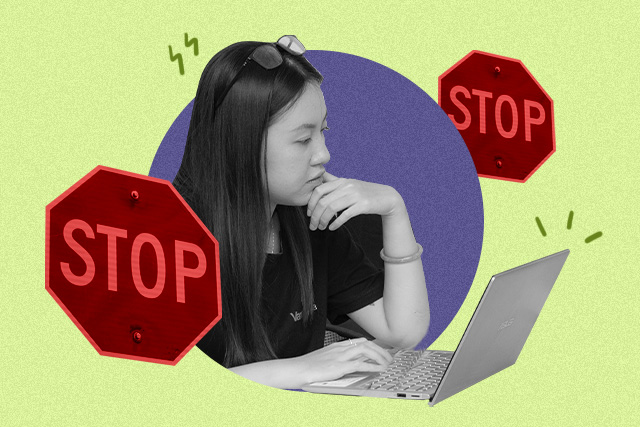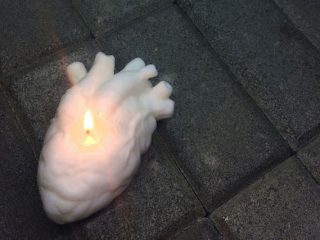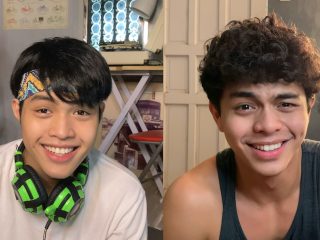
Whether or not they’ll end up getting failing grades, the students of the Philippines have declared a strike.
On Nov. 14, over 150 students from the Ateneo de Manila University publicly declared that they were going on a mass student strike to protest against “the national government’s criminally neglectful response” to the recent typhoons as well as COVID-19.
This inspired a number of students from different universities, among them the University of the Philippines, the Polytechnic University of the Philippines, the University of Santo Tomas and the De La Salle University, join #YouthStrikePH. However, the campaign has met pushback from school administrators and parents alike. With some stating that it’s negligent and dangerous.
In a chat with Ateneo de Manila University School of Humanities (SOH) representative Matt Rodriguez and Prof. Ayel Liwanag of the All UP Academic Employees Union-Los Baños (AUPAEU-LB), the student and the professor explained the response of their respective institutions to the campaign and how they’re addressing the needs of students. The SOH representative voted to endorse the strike petition while AUPAEU-LB has been campaigning alongside the students of the University of the Philippines-Los Baños (UPLB) to end the semester. Is it really possible to craft academic policies that would ensure that no student and educator would get left behind?
Hi, Matt! The Guidon reported that the authors of the Ateneo mass academic strike petition, along with the Sanggunian and the Central Assembly, refined the original petition published on Nov. 14. Can you walk our readers through what was stated in the original and what changes were made to it?
Matt: Honestly, I can’t do justice to all the changes. The whole thing went from one page to six pages. The most obvious change is the format and organization of the content. A [circulating comment on the original petition stated that] it appeared like a mess of ideas, demands and politics. The spirit was already there of course, but Ateneans were not so sure about signing onto something that seemed either too broad or too illegible, so to speak.
The strike organizers provided us with clear context on what necessitated it. For anyone attuned to the political climate, it’s pretty obvious [that] the government has been mishandling the crises in our country. [The effects] of Typhoon Ulysses only highlighted it. Many students lost a lot, and that meant many were going to fail without a chance. The strike was a call for solidarity, but was also meant to send a message that the youth know their priorities.
The section on demands was divided into demands from the student government, the Ateneo administration and the national government. It’s nice that they added a point on fair wages for faculty, staff and employees. We [received] a comment to [be inclusive] to the entire [Ateneo] community. Until the demands [are] met, [the strike] will not stop.
The strike action was explained in detail and actions in conjunction with the strike [were included]. This was in response to the sentiment that academic negligence would cause mass unproductivity. However, [the strike] calls students to focus on political protest, relief efforts and generally helping those in need instead of fulfilling academic requirements.
On Nov. 17, the Sanggunian Central Assembly denied the motion to endorse the petition for a mass academic strike in a vote. One of the two votes for approval came from SOH. What was the reason behind this?
Matt: The people of SOH simply didn’t want the conversation to end. The [reasons] behind the votes given by SOH students in the constituency checks showed that we all wanted the same thing. Perhaps it’s my bias, but the main ideas were [about] making the movement more inclusive. [We] were voting for the people who “weren’t with us in the room,” so to speak.
ICYMI: With a 7-2 vote, the Sanggunian Central Assembly has denied the motion to endorse the petition for a mass academic strike. pic.twitter.com/JuxJzxAXEn
— The GUIDON (@TheGUIDON) November 17, 2020
I think it was also clear from votes with reservations that most were not adamantly against it. A common question going around in my Fine Arts classes is “How can we make this work?” Many felt disregarded in the contents of the petition; they wanted to contribute input to get more onboard. I’d like to think as well that our Humanities courses played huge roles in my constituency’s decision.
Will The Sanggunian still endorse the petition once the concerns raised are addressed?
Matt: My understanding is that this depends on the final version that comes out on, I think, Nov. 22 or 23. I’m a bit confused myself, but I think there won’t be another constituency check. However, the students will be left to sign the final petition themselves, whether or not Sanggu still endorses it at the very end. Our endorsement is more of leverage and supplemental legitimacy for the strike. Not that I don’t think it’s very legitimate as it is.
How is it in your university, Ayel? On Nov. 17, the UPLB Council of Student Leaders officially declared a university-wide strike. Then on Nov. 19, the All UP Academic Employee Union-UPLB published an open letter encouraging the UPLB faculty to join its “Open our Classrooms” campaign. Are these two different campaigns?
Ayel: Para sagutin ang iyong tanong, kaisa ng AUPAEU-LB ang UPLB Council of Student Leaders sa kanilang kampanyang End the Sem. Hinihikayat namin ang mga kapwa guro na tapusin na ang semestre ngunit buksan ang aming klasrum sa “End the Sem, Open Our Classrooms.” Hindi naman nagbabangga ang aming kampanya sa kanila. Ang mas panawagan namin sa mga guro ay panatilihin ang komunikasyon sa mga mag-aaral at itigil ang graded assessments dahil na rin sa kasalukuyang estado ng mga mag-aaral sa UPLB.
Does the Open Classroom campaign seek to alleviate the burdens of typhoon survivors, like the Ateneo strike does? What are its demands?
Ayel: Sa kasalukuyan, mayroong mahigit 800 mag-aaral ng UPLB mula sa mga probinsyang Camarines Sur at Norte, Catanduanes, Albay, Sorsogon at Batangas na apektado. Maaari pa itong madagdagan sa mga susunod na araw dahil hindi pa nabibilang rito ang mga mag-aaral sa Marikina, Rizal, Quezon, Pampanga, Isabela at Cagayan. Mga mag-aaral ang primaryang constituent namin at bilang mga guro ng bayan, ito ang laging isinasaalang-alang namin sa pagkaklase.
Dayalogo ng OVPAA at ALL UP Acad Union
Sa Samu’t Saring Usapin sa Online Remote Learning, Promosyon at Iba Pa,
Pati Diskriminasyon sa Lecturers at Mga Kontraktwal, Pinag-usapanPosted by All U.P. Academic Employees Union on Friday, October 2, 2020
Lingid pa rito, maraming hindi natugunan ang System Admin ng UP sa mga hinaing ng mga faculty at kawani. Ipinahayag namin ang kakulangan ng suportang materyal ng Administrasyon mula sa technological subsidy hanggang mga problema sa aktwal na online classes.
Ngayon, ang panawagan namin sa Administrasyon ng UP ay ang mga sumusunod:
- Kung tapusin man ang sem nang biglaan ay ipagpatuloy pa rin ang kontrata ng aming mga teaching assistants, teaching fellows, at lecturers
- Bigyan ang mga faculty ng sapat na oras para konsultahin ang kanilang mga mag-aaral hinggil sa numerical o “pass” na marka, at bigyan ng assurance na i-rerecognize ng mga external scholarships ang non-numerical grade
- Regularisasyon at pagdaragdag ng regular na items para sa aming mga kasamahang teaching assistants, teaching fellows, at lecturers
- Mas mataas na technological subsidy para sa aming REPS at kawani
- Konkretong programa para sa pangangalaga ng kalusugang mental, pisikal at emosyonal ng mga empleyado ng UP
- Libreng shuttle service at regular na mass testing
How would the Open Classroom campaign affect classes and the grades for the semester?
Ayel: Kung tutuusin, mapalad pa ang mga guro ng UPLB dahil kalakhan sa amin ay regular na mga empleyado. Maaaring tapusin ang semestre pero hindi titigil ang pagiging guro lalo pa’t hindi mo maitatali ang aming tungkulin sa graded tasks at assessments kaya minumungkahi namin ang Open Our Classrooms na kampanya sa mga guro. Ang panawagan ng Open Our Classrooms ay ang mga sumusunod:
- Tapusin ang mga graded requirement
- Patuloy na pagbibigay ng mga materyales at sesyon sa mga mag-aaral pero hindi na rekisito at may recording para sa mga hindi makasasama sa synchronous sesyon
- Buksan ang mga klase lalo na para sa mga mag-aaral sa parehong kurso noong nakaraang semestre
- Ipagpatuloy ang bukas ngunit hindi markadong talakayan, konsultasyon at study group sa mga klase para mapunan ang mga competency na kailangan ng mga mag-aaral
- Maging kaisa sa paglikha ng isang solid at integrated na bridge program
Maraming salamat sa mga faculty, lecturer, teaching assistant, teaching fellow, at REPS na may teaching load na dumalo…
Posted by All UP Academic Employees Union – Los Baños on Sunday, November 22, 2020
Kung papansinin, ginagawa naman talaga ito ng isang UP professor ngayon, mawawala lang ang komponent na graded. Ito na ang pinaka-humane na maaaring gawin ng isang propesor at muli, hindi naman maitatali ang pagiging guro sa grado.
Back to Matt, only 20% of the students participated in the constituency check and the results showed votes against the endorsement exceeded those in approval of it by 7.4%. Was the Sanggunian able to identify the reason behind this?
Matt: About 20% is actually a huge number, historically speaking. Our own Sanggu elections tend to get 10% at best, so this is pretty significant news for political engagement in the Ateneo student body. I don’t know if it’s a good idea to mention that statistic, but then again it’s publicly available on Ateneo COMELEC and, I think, The Guidon too? It can’t be denied that a lot of students might not have had the means to answer the consti checks, be it because of the storm or even because of the short notice.
We’ve been consolidating the issues that people have had with the petition, and it’s not one or the other. Many have reservations about the petition itself, but just as many have apprehensions about the strike action. Equal to those have qualms about the demands to the higher bodies targeted, namely the school admin and the government. There are those whose issues bridged the two, by way of how the strike on education is supposed to challenge the government, given how separate those two institutions are in the practical sense. This is all the more highlighted by the fact that Ateneo is a private institution, mostly independent of the government in its functions compared to public institutions.
Has The Sanggunian met with the university administration officials? Will the students on strike receive failing grades like presidential spokesperson Harry Roque said in an interview?
Matt: We did have a meeting right after. There’s definitely a call for greater academic leniency especially for those who don’t have the means to submit anymore, even if they wanted to. Furthermore, there are talks on how to better implement the Loyola Schools Online Learning Policies. However, there have just been too many issues of noncompliance at the cost of student welfare.
As for the petition and strike themselves, it seems the compromise was to allow for a longer grace period, until second semester, for students to accomplish leftover requirements from the first semester, both for students who could not submit due to the typhoons and for students who deliberately did not submit [to show support for the] strike.
JUST IN: The Office of the Associate Dean for Student Formation released a joint statement with representatives of student and alumni groups on the main points discussed regarding the student strike.
See the full statement here: pic.twitter.com/5pmka1T0CW
— The GUIDON (@TheGUIDON) November 22, 2020
Is there a similar call from AdMU’s academic employees and other university workers to end the semester?
Matt: The university is very, very divided, and it’s not just the students. Faculty and employees are also split, as far as I’ve been able to see. Personally, I’m just glad to see that there are still professors who see the value in students’ engagement in politics, whichever side their pupils take.
The Commission on Higher Education has left the schools to decide whether or not they will implement an academic break. If a school decides to push through with classes, what would this mean for students and employees?
Ayel: Sa kasalukuyan, mayroon kaming 23 teaching assistants at teaching fellows at 36 na lecturers. Ang panawagn namin sa Administrasyon, ipagpatuloy ang kontrata ng aming mga TA/TF at lecturers. Maaari pa rin silang tumuwang sa maraming bagay mula paghahanda sa susunod na semestre hanggang sa relief operations ng UPLB ngayon sa ilalim ng UPLB Agapay.
Matt: Whatever the case, universities must be held responsible for considerations to students. Personally, I’ve found that ADMU’s Online Learning Policies were a great move on the school’s part, albeit many professors were being somewhat stubborn to comply. That’s what keeps me busy in Sanggu, handling weekly concerns on mishandled classes and difficult professors in the time of pandemic.
Do the campaign for ending the semester and the student strike disregard the importance of education?
Matt: The opposite, I think. It’s largely resurfaced the conversation on what education is supposed to be today. The Philippines has been running on an inherited colonial education for the past century. There’s a reason it hasn’t been doing us that much good. I’ve only ever been an Atenean, so I suppose I can only speak for my university. But for a vast majority of the institution, we seem to have lost touch with our Humanities roots.
You can’t imagine how many times I’ve heard, “When will I need philosophy in my future business?” or “Fine arts course shouldn’t even be four whole years.” How can we argue then for the importance of an education that has been instilling greater disregard for the disciplines that explore our own humanity? How has moral discourse died out from the cores of most of our classes today? Perhaps the issue is in our current models of education, which need to be revisited and put into deeper question.
The notion that the importance of education is being disregarded isn’t a question of education per se, but of standardization. What’s being disregarded are the bureaucracies of education, i.e. the assessments. Paperwork cannot measure learning. It’s attitude.
I suppose the argument can be made that education is being disregarded, if we define education by how many social ills a student can turn a blind eye to, for more A’s on the report card.
JUST IN: In light of the One Big Strike manifesto released earlier today, the Sanggunian has released a statement in support of students' right to protest.
See the full statement here: pic.twitter.com/5JlMbebnvT
— The GUIDON (@TheGUIDON) November 23, 2020
How can students and educators explain the campaign to worried parents?
Matt: Honestly, this is very difficult. I don’t know how to explain it delicately to my own parents. I can’t say this would work for everyone but what I’ve been doing is beginning the conversation with the EDSA People Power revolution.
When my parents asked me about what I’m doing and why SOH voted yes, I asked them to recount the Martial Law era. I asked what made them join [the EDSA revolution]. After they answer that, I ask if [they] would have wanted me doing nothing [if I was there]—just let it happen while I watched.
My approach is never to explain it myself, but to speak in a way that has other people “explaining to themselves.” We need parents to grasp the events [by helping them put themselves in] our position. I hope that makes sense. (Laughs) I personally don’t know if my mom got it when I did this, but it felt infinitely better than trying to explain or rewording it myself—and I’m a creative writing major! (Laughs)
Art by Dana Calvo
Follow Preen on Facebook, Instagram, Twitter, YouTube and Viber
Related Stories:
Here’s why we need to support student strikes
Contemporary protest albums to blast when there’s BS on the news
Sharpen your wits, we’re using secret languages to protest now
Listen, toxic productivity hurts both teachers and students

